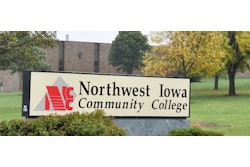Community colleges seek funding and policy changes to job training law to better meet evolving needs of the American work force.
As the first Hispanic woman nominated as U.S. secretary of labor, U.S. Rep. Hilda Solís, D-Calif., faces a series of challenging work force issues, including the role of postsecondary education in preparing Americans — counting the recently unemployed — for high-paying jobs.
One of the first tasks facing Solís is addressing the future of the Workforce Investment Act (WIA), the federal government’s chief job training law. Although many community colleges are active partners in WIA initiatives, the federal program has languished without a long-term reauthorization from Congress since 2003 amid concerns that it is overly bureaucratic and not nimble enough to meet job seekers’ needs. Funding also has declined during the past decade.
“Without changes to the WIA statute, our colleges will be hampered from fully utilizing the WIA framework to serve the needs of business, workers and their local communities,” says George Boggs, president of the American Association of Community Colleges.
In a letter to President-elect Obama, the AACC leader said a major concern is funding, which has declined by 70 percent in recent years. Boggs is asking lawmakers to restore funds at least to 2002 levels.
But administrative and policy changes also are needed to bring education and economic interests together.
“To ensure that America continues to have a competitive work force, bold structural reforms are necessary,” said Bennett Blodgett, representing Gov. Tim Kaine, D-Va., at a recent “WIA listening session” on Capitol Hill. Key principles of any restructuring should include alignment of work force and education goals along with flexibility, he said.
“The work force system cannot be onesize- fits-all programs with rigid regulations and prescribed service delivery structures,” Blodgett said. The goal is to “create a marketdriven, supply-focused system that serves workers and business.”
Virginia has won kudos for relying on community colleges as a major foundation of its WIA system, a model that some believe is worth expanding nationwide. The WIA program relies heavily on one-stop career centers, where individuals can obtain training and career planning services; WIA programs also target youth, adults and workers dislocated by plant closings.
A member of the House of Representatives since 2001, Solís is no stranger to work force issues. During her time in Congress, she sponsored legislation to help prepare workers for environmentally friendly — or “green” — jobs. A version of that plan
That background should come in handy with at least one item on Obama’s agenda: a 10-year, $150 billion plan to invest in renewable energy.
During the presidential election, the Obama campaign made several pledges on job training and labor issues. The plan would:
• Provide more transition help to those displaced from service industry jobs as well as those from traditional manufacturing;
• Increase federal work force training funds, again with an eye toward training for “green” jobs; and
• Provide greater worker freedom to join unions “without harassment or intimidation from their employers.” Obama has co-sponsored such unionfriendly legislation, the Employee Free Choice Act. Approval of that law also could lead to easier union organizing among higher education teaching assistants or employees.
Community colleges also are asking for specific changes in WIA. Public higher education institutions should be deemed “automatically eligible” training providers under the federal law, AACC says. In addition, Congress should create a new national program to promote innovative approaches to bridge gaps between traditional adult basic education and postsecondary education and training.
Such a program could operate in much the same way as Tech-Prep programs helped build bridges between high schools and community colleges, the association says.
Solís, 51, will enter this fray after her expected Senate confirmation. The daughter of immigrants, Solís has represented East Los Angeles in Congress, and she also served in the California State Assembly and Senate, where she worked to pass an increase in the state minimum wage. Unions applauded her nomination, citing her work on behalf of union organizing and higher wages. Hispanic congressional leaders also endorse the choice.
“Congresswoman Solís has long been an advocate for America’s hardworking men and women, and I can think of no better person to repair an agency that has been out of touch with the American work force for the last eight years,” says Rep. Rubén Hinojosa, D-Texas, a member of the House Community College Caucus and chairman of the House Postsecondary Education Subcommittee.
Hinojosa’s subcommittee has oversight over WIA’s renewal, and he says he looks forward to working with the new secretary to craft a comprehensive new bill.
Email the editor: editor@diverseeducation.com
Click here to post and read comments
© Copyright 2005 by DiverseEducation.com















